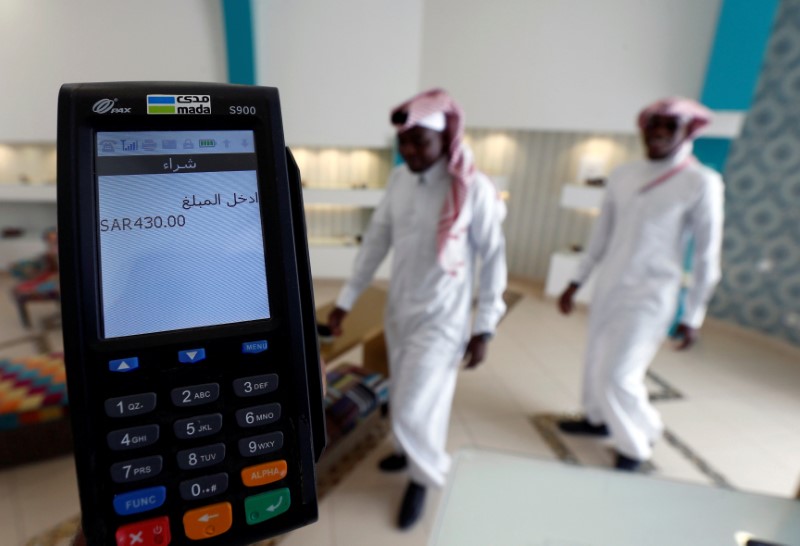By Davide Barbuscia and Tom Arnold
DUBAI (Reuters) - At least three commercial banks in Saudi Arabia are preparing U.S. dollar debt issues, banking sources said, in what would be the first hard-currency debt sales by Saudi banks in several years.
The banks want to diversify their sources of finance and boost capital levels, but are in no rush for the cash as they are still flush with liquidity due to sluggish credit growth and looser public spending.
The kingdom's increasing reliance on international bond issues has also freed up liquidity for local banks.
Riyad Bank (SE:1010), the kingdom's fourth-largest bank by assets, has mandated banks for a U.S. dollar bond sale, four bankers said.
The bank had announced its intention this year to establish a program to issue bonds in local currency and U.S. dollars to diversify sources of finance and boost the bank's capital base.
The largest lender, National Commercial Bank (SE:1180) (NCB), is preparing documents before a potential issue, two sources said
Samba Financial Group (SE:1090), the third largest, is working with Citigroup (N:C) on a potential U.S. dollar debt sale, four sources said.
The three Saudi banks did not respond to requests for comment. Citigroup declined to comment.
Saudi banks are often better capitalized than their international peers, but experts said they may want an extra buffer to prepare for new international rules on capital levels, known as Basel III, and to meet an expected rise in credit demand.
Saudi banks had been expected to issue U.S. dollar bonds after the Saudi government started borrowing on international markets two years, part of its effort to boost its finances that had been hit by a slump in oil prices.
"We expected banks to issue after the Saudi sovereign bond, as that's a typical trajectory in the development of debt markets: sovereign, banks and then corporates," said Usman Ahmed, head of investments at Emirates NBD Asset Management.
The kingdom has issued $50 billion in international bonds, with $9 billion of the total via Islamic bonds. This has established a sovereign yield curve, providing a benchmark for bank and corporate bond issues.
But bankers said the slowdown in credit demand, as sliding oil prices hurt the economy, meant Saudi banks were under no pressure to raise more funds. However, rising crude prices, now at their highest since 2014, are lifting economic prospects.
Moody's estimates excess liquidity in the banking system was 5.1 percent of assets in March, against 6.2 percent in December, suggesting that this year's slide in government deposits held by commercial banks had dented available funds but not by much.
However, the ratings agency said it expected credit growth in Saudi Arabia to "rebound materially" in the second half of 2018, and banks' funding needs could increase amid rising domestic sovereign and quasi-sovereign debt sales.
